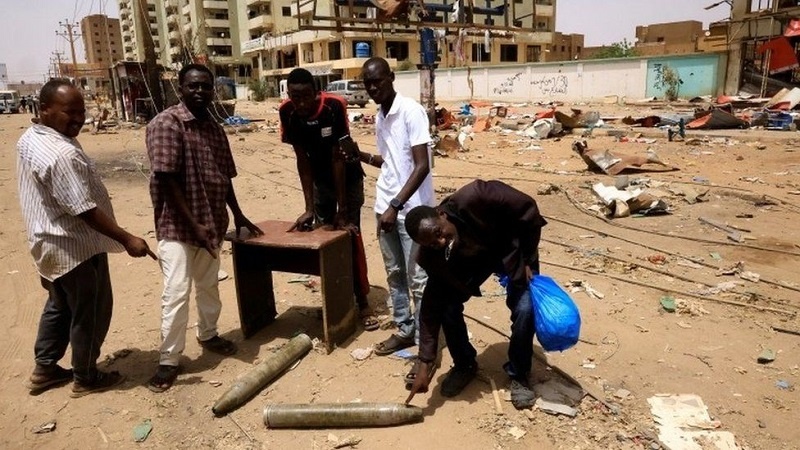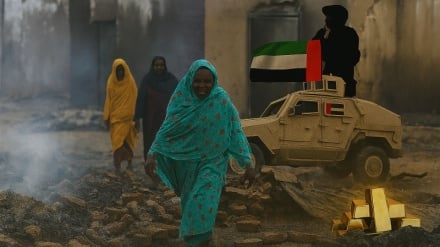Sudan’s fighting factions agree to seven-day ceasefire
Sudan's regular army, led by the de facto leader of the country Abdel Fattah al-Burhan, and his former deputy Mohamed Hamdan Dagalo's army, the paramilitary Rapid Support Forces (RSF), have agreed to a seven-day ceasefire.
The two rival generals agreed to a new ceasefire on Tuesday after the previous one expired a day before, the Foreign Ministry of South Sudan said in a statement.
The two sides also said they would send representatives for peace talks “to be held at an agreed venue of their choice,” it added.
South Sudan President Salva Kiir, who had offered to mediate in the conflict, had named envoys to peace talks, to which both sides of the conflict had agreed.
The shaky and partial ceasefire has been renewed multiple times since the fighting began.
Military forces loyal to Burhan and Dagalo, popularly known as Hemedti, started fighting one another in mid-April, sparking a mass exodus of refugees from the conflict-ridden country and leading to the death of hundreds of people and injury of thousands more.
Prior to the fighting, the plan was to let political power to transit from the junta to a civilian government
However, Burhan and Hemedti, who seized power together, have shown an unwillingness to transfer power to civilian elements in Sudan’s political system.
Meanwhile, UN Emergency Relief Coordinator Martin Griffiths, who was named as an envoy to the region on Sunday, said the country’s “humanitarian situation is reaching breaking point.”
Sudanese families are struggling to access water, food, fuel and other commodities, with some unable to relocate due to the cost of transportation out of the worst-hit areas, Griffiths reported.
Overnight hospitals reported strikes on their premises.
In Khartoum’s twin city, Omdurman, volleys of airstrikes and sounds of gunfire were audible as clashes raged throughout the capital, and were particularly heavy in areas around major government and military infrastructure in the city center.
An airstrike on the area outside East Nile hospital in north Khartoum killed at least three tea vendors as well as a child, leaving behind only a crater.
Griffiths warned that urgent health care “is severely constrained, raising the risk of preventable death.”
ME



